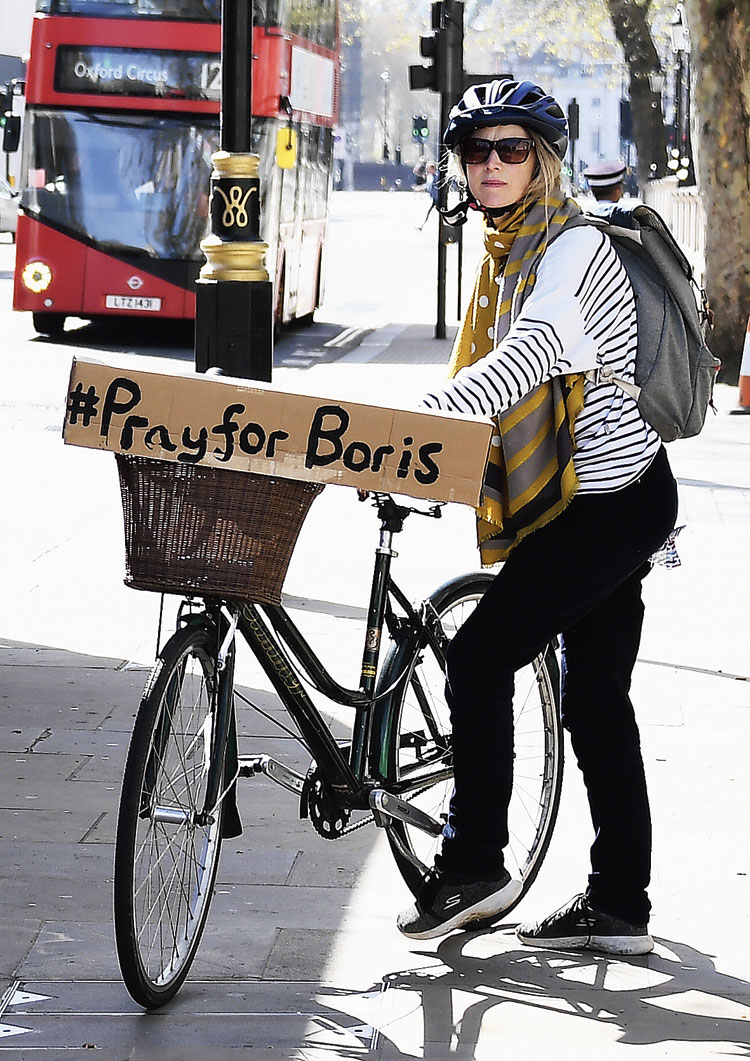Prime Minister Boris Johnson was moved into intensive care on Monday, a worrisome turn in his 10-day battle with the coronavirus and the starkest evidence yet of how the virus has threatened the British political establishment and thrown its new government into upheaval.
The government said the decision was a precaution and that he had been in good spirits earlier in the day. But with Johnson’s aides releasing few details about his condition, the nation kept a tense vigil on Monday night, hoping for the best and experiencing, together, the frightening mysteries of this disease.
In a sign of how grave the situation had become, Downing Street said in a statement on Monday that Johnson had asked the foreign secretary, Dominic Raab, to deputise for him “where necessary”. The pound fell against the dollar after investors reacted to the news.
After noting earlier in the day that the Prime Minister was still getting official papers, Johnson’s aides said he had been moved to the intensive care unit in case he needed a ventilator to help his recovery. Not every patient in critical care is ventilated, medical experts said, but many are — or are at least given oxygen. The Prime Minister remains conscious, officials said.
For Johnson, 55, it was an especially cruel reversal. Just four months ago, he engineered the greatest Conservative Party victory since Margaret Thatcher in 1987, delivered his promise to take Britain out of the EU, and set in motion an ambitious economic program to transform his divided country.
Now, Johnson, a political phenomenon whose career has always had a quicksilver quality, finds himself in a debilitating battle after contracting a virus he initially viewed with characteristic nonchalance. For Britain, which had so recently emerged from three and a half years of paralysis and polarisation over Brexit, Johnson’s illness plunges the country back into the uncertainty Britons thought they had left behind.
When the Prime Minister announced on March 27 that he had tested positive for the virus, he insisted he would remain firmly in charge of the government’s response to the virus, chairing the daily crisis meetings by video while self-isolating.
It had been an occasionally shaky performance until then: The government initially debated how aggressively it would try to curb the spread of the pathogen. That contributed to an inadequate, poorly organised testing program, and reinforced Johnson’s reluctance to impose a strict lockdown on his country.
In recent weeks, Johnson had seemed more in command. Britain has pledged to test 100,000 people a day by the end of this month. .
Even after Johnson had isolated himself in his apartment next door to 10 Downing Street he released a shaky, handheld video on Friday, in which he warned people not to crowd parks during a sunny spring weekend.
Johnson’s aides predicted he would emerge from isolation that day. But he said he was running a temperature and suffering a cough. Two days later, he was admitted to St Thomas’ Hospital in central London, still suffering from those symptoms.
On Monday, Downing Street said in a statement, “Over the course of this afternoon, the condition of the Prime Minister has worsened and, on the advice of his medical team, he has been moved to the Intensive Care Unit at the hospital.”











